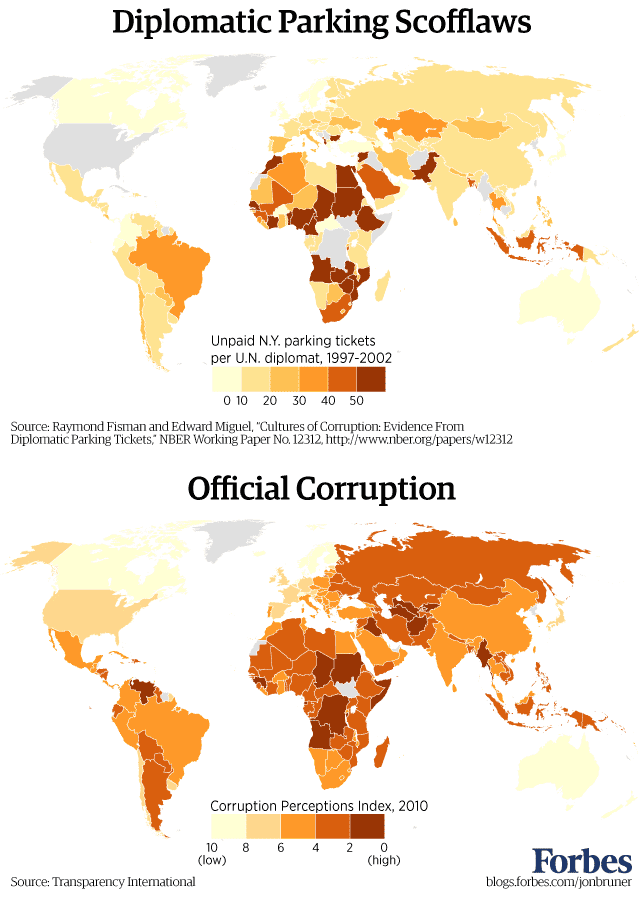Tim Harford linked to this Forbes graphic showing an interesting correlation:

This nicely illustrates what he wrote in 2006:
An alternative view, popular among the common-sense crowd, is that corruption is a problem in Indonesia because Indonesians are crooks by nature; poor countries are poor because they are full of people who are lazy or stupid or dishonest. I disagree out of faith, rather than because the evidence is compelling. But then, what evidence could there be? You would need to take people from every culture, put them somewhere where they could ignore the law with impunity, and see who cheated and who was honest.
That sounds like a tall order for any research strategy, but the economists Ray Fisman and Edward Miguel have realised that diplomats in New York city were, in fact, the perfect guinea pigs. Diplomatic immunity meant that parking tickets issued to diplomats could not be enforced, and so parking legally was essentially a matter of personal ethics.
Fisman and Miguel found support for the common-sense view. Countries with corrupt systems, as measured by Transparency International, also sent diplomats who parked illegally. From 1997-2005, the Scandinavians committed only 12 unpaid parking violations, and most of them were by a single criminal mastermind from Finland. Chad and Bangladesh, regularly at the top of corruption tables, produced more than 2,500 violations between them. Perhaps poor countries are poor because they are full of corrupt people, after all.



